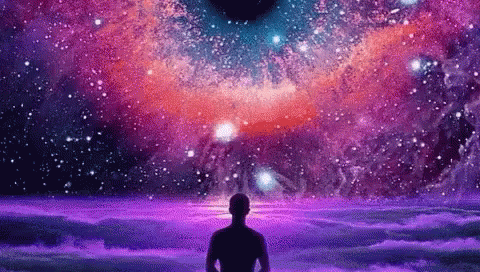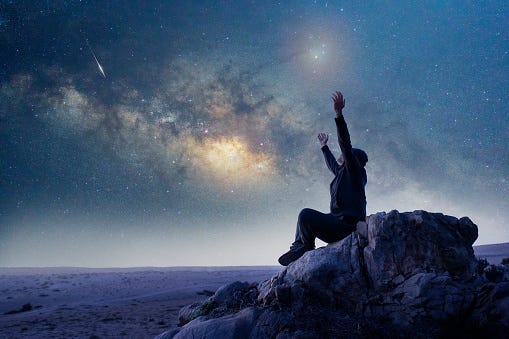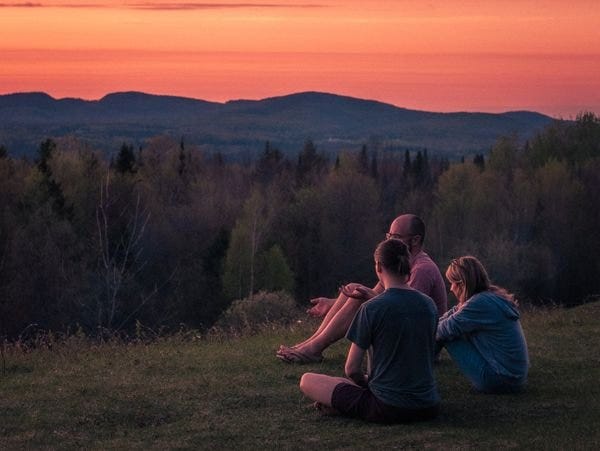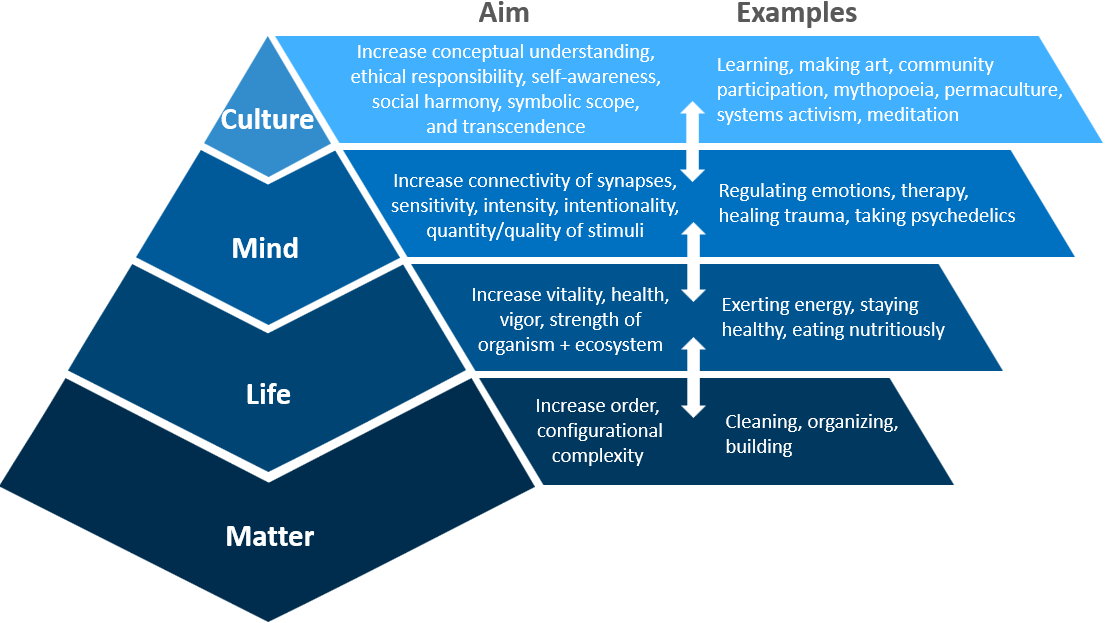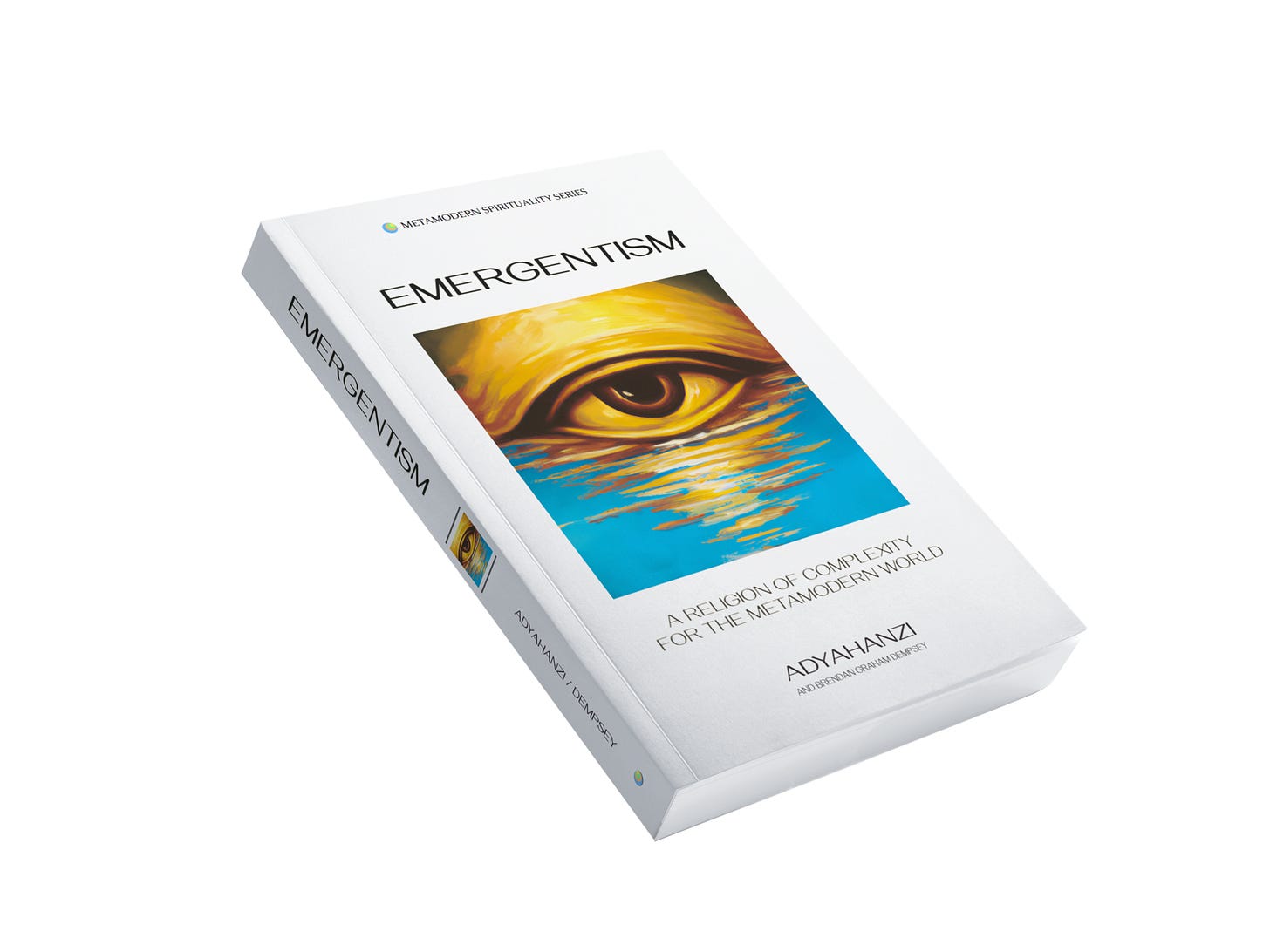Emergentism | 8. Ethics and Practices, Part I
Observance
So, we live in an evolving Universe ceaselessly complexifying, generating novel emergent levels of existence which deepen in consciousness and richness of subjective experience as the cosmos develops, awakens to itself, and forms one harmonious and integrated Whole from the symphony of its participants all converging towards Godhead. Now what?
First, holy shit! That’s amazing. The initial reaction to such information should rightly be awe, wonder, and, indeed, reverence. Could it be true? The Universe is not some meaningless explosion of space headed for a slow heat death, but a sublimely grand organism developing towards something we can only compare to Divinity? Our lives are not just a cosmic joke without importance or direction, but significant self-conscious participations in the epic of cosmic awakening? Hallelujah!
Compared to the old materialist-reductionist account, this new cosmic story is truly a “game-changer” for our perspective, a 180° reversal in terms of our understanding of meaning and purpose. In traditional religious terms, you’d call that “good news,” and the sudden reversal of orientation, “metanoia”—that is, “conversion” (a “turning around”).
The original sense of the word conversion (like so many terms tarnished by fundamentalist religion) has been lost to the cheapened notion it now conjures: a sort of membership signup, wherein one simply offers their pledge of allegiance to the new deity and consents to join Team Dogma. But conversion in its true sense means something much more profound. It suggests a sudden U-turn from the path you were on and the adoption of a whole new lifestyle—one in accordance with the new perspective of your expanded consciousness. A metanoia means you’ve downloaded some profound new wisdom (gnosis) that demands a real shakeup in how you’ve been living (praxis). Knowledge transforms behavior.
The consequence of learning that a food is toxic, for instance, is to stop eating it; or, if the opposite is true, and what you thought was toxic is actually a crucial source of nutrition, to work it into your diet. This is immediately intuitive for behaviors that affect us directly as individuals, but it is also true of behavior that affects others. If I smoke cigarettes and learn that you have asthma, that should cause me to stop smoking around you. Knowledge effects how we treat others, meaning knowledge affects ethics.
Religion is ultimately meaningless if it doesn’t affect how people live in the real world. It’s one thing to know, it’s another to do, and taking cosmic complexification seriously has a plethora of transformational implications for how we ought to be showing up in the world. Wisdom informs action. Hence the second meaning of religio: “observance,” as in “observing one’s duties/responsibilities”; the etymological opposite of the word “neglect.” Religion means living your beliefs.
So, what are the implications of the knowledge gained from this new holistic perspective in terms of how we should be living? Moreover, what are some holistic practices we might adopt that can enhance our integration and wellbeing, individually and collectively, based on this new perspective? Most importantly, how do we live maximally meaningful lives—which is to say, how can we best give ourselves in service to the higher purpose, the greater whole? How do we become full participants in the awakening of God, Self, and Cosmos? Here, we will tick off the remaining boxes in our toolkit for building ethical culture, Ethics and Sacraments, as we look at practicing Emergentism within a broader moral community.
Our spiritual praxis begins by awakening to the sacred reality of existence at all levels—Matter, Life, Mind, and Culture—and coming to recognize our Self in them. And considering that we are composite beings, operating through all levels, this means learning to integrate our own various sub-systems into a harmonious whole as well.
Simply put, Emergentist spiritual practice is about conscious participation in the awakening of the Universe.
That means taking responsibility for ourselves as self-conscious agents, and directing our powers to intentionally raise the level of complexity-consciousness in ourselves, in others, and in the cosmos as a whole—ultimately, toward the realization that these are all the same.
Perhaps, on hearing this, you are now anxiously expecting some strenuous, highly demanding regime of ascetic discipline; or, maybe worse: some loose, “wooey” feel-good rituals to “be one with the energy,” etc. As it turns out, neither is the case. Emergentist spiritual praxis is actually rather straightforward and pragmatic—just what you might expect, I suppose, from a “religion that’s not a religion.” Rest assured that you will not be expected to stand for 8 years on a pillar, nor spend an hour allowing your “astral body” to resonate with “healing frequencies,” etc.
But just because a truth is clear and simple doesn’t mean it isn’t profound. A rich spiritual life is one that learns to see the sacred in the supposedly profane, the divine in the seemingly mundane. As it is, holistic Emergentist practice covers a broad range, from the ostensibly commonplace to the truly transcendent. This is because the Universe itself covers a wide spectrum of complexity and conscious depth, and Emergentist praxis tracks with that spectrum. So let’s dig in to just what that looks like.
If we consider the evolution of the Universe and the development of its modes of deepening Self-knowledge, we can see how its teleological drive comes into greater and greater focus up the Wisdom Stack—from Matter’s tendency to self-organize, to Life’s urge to grow more robust and diverse, to Mind’s desire for richer experience and relationship, to Culture’s dedication to knowledge accumulation and increased self-reflection. Given that we both experience all of these levels in the world around us, and also are, in ourselves, all of these levels in action, it seems appropriate to consider Emergentist spiritual practices that intentionally aid these crucial levels at every level of existence.
That is, how might we amplify and assist the increase in order vs. chaos, vitality vs. decay, pleasure vs. pain, and Self-knowledge vs. ignorance? To develop a personal ecology of practices that succeeds in these endeavors would mean that we are consciously aiding the Universe in its own journey of awakening. We are the Self-consciousness of the Universe; our spiritual journey is God’s spiritual journey.
Based on this, we can get a general sense of some Emergentist practices as they relate to the Wisdom Stack:
From atoms to cells to moving bodies to symbolically-mediated self-consciousnesses, we have the Universe inside us. We must tend to all levels of the Wisdom Stack, then, if we are to be maximally integrated beings. And only as such integrated beings will we be ready and responsible to rise still further, through the next emergence on the horizon, towards our divine calling. For, ultimately, we must follow this trajectory to its true telos: an awakening to God consciousness, wherein we experience the true mystical union—subject with object, self with Self, that we might say “I AM,” knowing we are God, we are the Universe, we are Everything—the true Whole.
NEXT: Level 1 (Matter) and 2 (Life) Practices
Buy the full book here:

